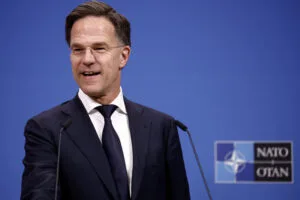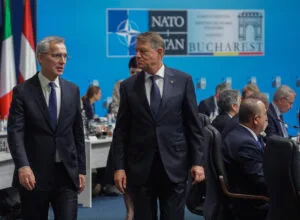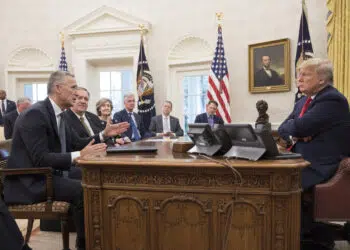Brussels – It is now official. The outgoing Premier of the Netherlands, Mark Rutte, will be the next NATO Secretary General as of October 1, the North Atlantic Council, the main decision-making body of the North Atlantic Treaty Organization, announced in a note its decision to nominate the only remaining candidate in the race to succeed the Norway’s Jens Stoltenberg at the helm of the Atlantic Alliance, taking up his duties a few months after the Washington Summit (scheduled for July 9-11).

“I warmly welcome the NATO allies’ choice of Rutte as my successor,” is Stoltenberg’s enthusiastic announcement, calling the Dutch premier “true transatlanticist, a strong leader and a consensus-builder. I know I am leaving NATO in good hands.” Rutte’s first words after the appointment underline the “tremendous honor” to lead the Atlantic Alliance, which “is and will remain the cornerstone of our collective security,” the almost former Dutch Prime Minister said. “Leading this organization is a responsibility I do not take lightly. I’m grateful to all the Allies for placing their trust in me,” he added while thanking his predecessor Stoltenberg, “who has provided NATO with exceptional leadership over the past 10 years and for whom I have always had great admiration.”
The leaders of EU institutions in Brussels also congratulated the Dutch liberal who has been at the European Council table for the past 14 years (he took the office of Prime Minister of the Netherlands on Oct. 14, 2010). “Your leadership and experience will be crucial for the Alliance during these challenging times. I look forward to working with you to further strengthen the EU-NATO partnership,” said European Commission President Ursula von der Leyen, reinforced by the words of EU Parliament President Roberta Metsola: “At a time of increasing security challenges across the globe, your leadership and tenacity will be much needed.” The Secretary-General of the European Democratic Party, Sandro Gozi (from the Renew Europe family like the almost former Dutch Prime Minister), also expressed satisfaction with the choice of Rutte, “who comes while the future of Europe, peace, and security is at stake.”
Rutte’s race to lead Nato

As early as the end of February, it had become clear that the resigning Dutch Premier was the favorite to succeed Stoltenberg at the head of the Atlantic Alliance after winning the support of 20 member countries, notably the United States and the United Kingdom. The Alliance’s Secretary-General selection is through informal diplomatic consultations among member countries, which propose candidates for the post (traditionally a senior European political figure). There is no actual vote, but the decision is not confirmed until there is a consensus on a candidate. Rutte continued his diplomatic work in recent months to convince all 31 leaders until Hungary’s Prime Minister, Viktor Orbán, announced on June 18 the agreement with outgoing Secretary-General Stoltenberg to unblock Rutte’s nomination (following a letter received from his Dutch colleague himself), and so did the President of Slovakia, Peter Pellegrini. The President of Romania, Klaus Iohannis, was thus left without any potential support, pulling out of the race to become the next NATO Secretary General last Thursday (June 20) at the end of the Supreme National Defense Council meeting.
English version by the Translation Service of Withub









